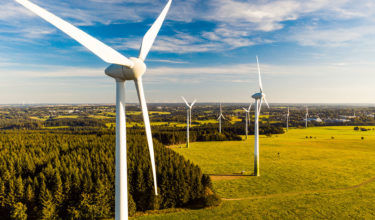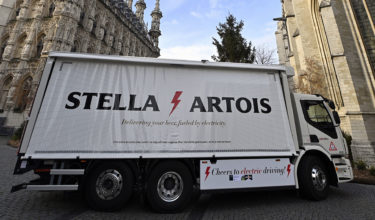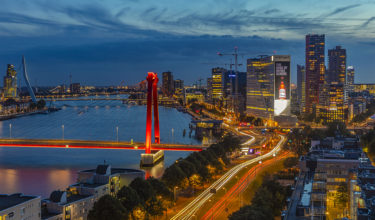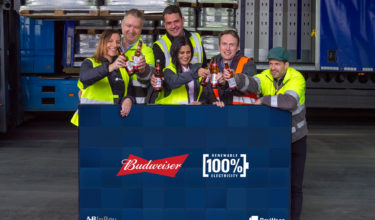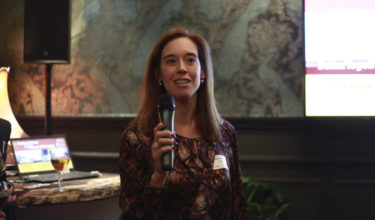AB InBev has developed a new digital process for direct printing of texts, logos and images on cans and glass bottles. The benefits are unseen.
This new development is not only better for the environment, it also opens up a lot of creative possibilities, explains Danielle Miller. As Global Packaging Innovation Director at AB InBev, she helps coordinating the digital print project: “Basically, digital printing enables us to provide every bottle or can with a unique print, each time different from the previous one. With the traditional printing process on labels, millions of bottles and cans have the same label. Digital printing has been around for some time now, but it was mainly applied to flat surfaces. Together with our partners, we created a method which also allows us to print on round surfaces.”
TOMORROWLAND
“100% of our customers interact with the packaging”, says Danielle Miller. “They keep the can or the bottle in their hand while they drink. So the packaging is an important communication tool. Thanks to this new printing process we can fine-tune the packaging to match a certain location or event.”
Last summer, AB InBev delivered 10,000 personalized Budweiser cans at the Tomorrowland dance festival, with visitors from 200 countries. “Because this is an international festival, we printed the flags of all the nationalities present on the cans. We were the first brewery in the world to use the digital printers from our partner Tonejet.”
PRINTING ON GLASS Glass printing is still a lot more challenging. Not only because of the unevenness of the glass, but also because the ink on the beer bottles has to withstand the high temperatures during the pasteurization process in the brewery. “We investigated different methods, until we found a solution in which the ink and the printing is not affected by the hot temperatures of the pasteurization and the high speed of the filling installation.”
This year, AB InBev’s glass printing technology was also demonstrated during a number of marketing campaigns. “For Father’s day we printed 2,500 personalized beer glasses for the French beer retailer Saveur Bière, using images that customers could send in. We produced twelve different Jupiler glasses for the Dutch football club Ajax, with images of well-known players. And for Global Beer Responsible Day we printed special Jupiler 0.0% bottles, with the names of some well-known cafes and famous people. Our CEO Carlos Brito also handed such a personalized bottle to Belgium’s Prime Minister Charles Michel.”
LESS CO2 EMISSIONS AND PACKAGING WASTE
Although AB InBev does not apply this digital printing process on cans and bottles on an industrial scale yet, it is clear that it is a solution for the future,’ says Danielle Miller. “By digitally printing our packaging we emit 60 percent less CO2 in comparison with classical printing methods on labels. Because of the difference in materials and the lower temperature of digital printing.”

“Moreover, digital printing also produces less waste: classic printing processes with printing plates and presses require a minimum number of orders before production can be started. But not all of those orders are always used or sold. With digital printing you can even place orders for one print and you can plan the production process perfectly according to the number of orders. Within the next few years, AB InBev will keep on investing in its digital printing process, so that it can be rolled out on a larger scale”, concludes Danielle Miller.

